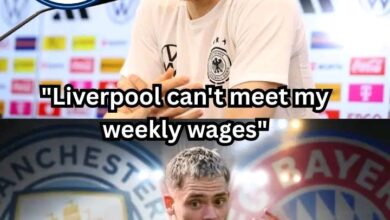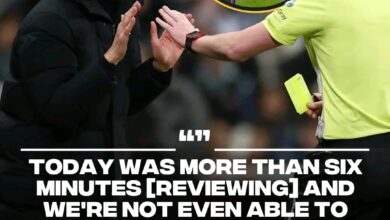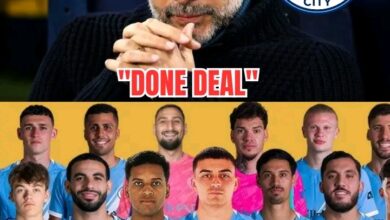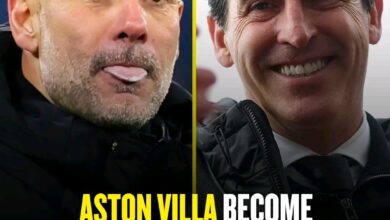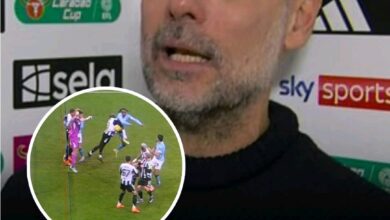Man City confirm exit of £9million forward, Deal Sealed
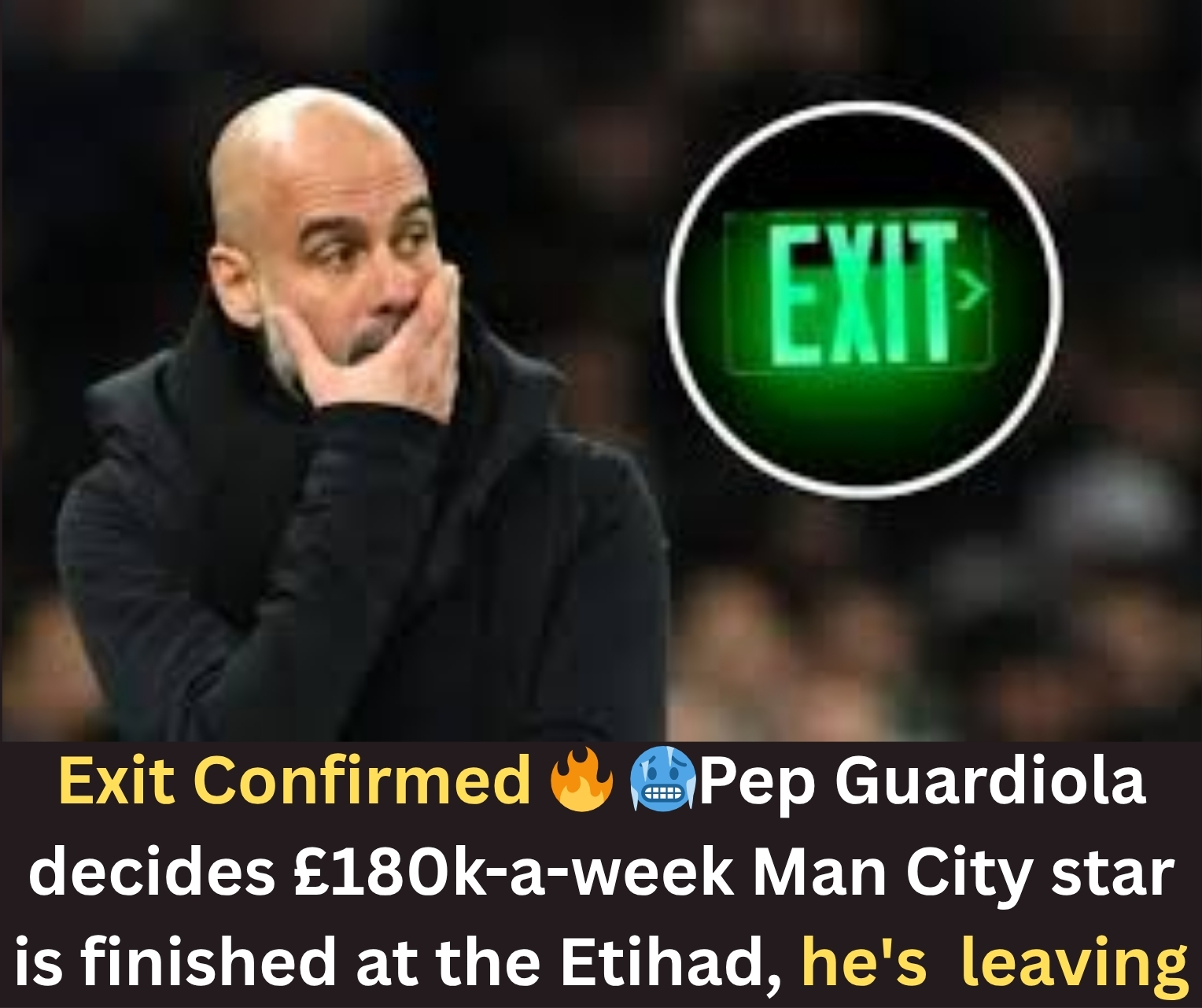
Manchester City have officially confirmed the permanent departure of Brazilian forward Kayky to Bahia, marking the end of a four-year association with the Premier League champions. The 21-year-old’s exit represents another chapter in the club’s ongoing strategy of developing young talent while maintaining their competitive edge at the highest level of football.
The transfer, which is subject to international clearance, brings closure to what many had hoped would be a breakthrough story for the young Brazilian. Kayky’s journey from South American prospect to Manchester City player, and ultimately back to Brazilian football, offers valuable insights into the challenges facing young international talents in modern football’s most competitive leagues.
The Initial Investment: Manchester City’s Faith in Brazilian Talent
When Manchester City secured Kayky’s signature in April 2021, the investment represented more than just another transfer. The club paid Fluminense an initial fee of £9 million for a player who was just 18 years old at the time, demonstrating their commitment to identifying and nurturing the next generation of football talent. This substantial investment reflected the club’s confidence in their scouting network and their belief in Kayky’s potential to develop into a first-team regular.
The transfer was part of Manchester City’s broader strategy of investing in young South American talent, following in the footsteps of other successful acquisitions from the region. The club’s track record with players like Gabriel Jesus, who also arrived from Brazilian football, provided a template for how they hoped Kayky’s career would develop. However, the modern game’s demands and the intense competition for places at elite clubs like Manchester City present unique challenges that not every young player can overcome.
Kayky’s arrival at the Etihad Stadium was met with considerable excitement among the club’s supporters and youth development specialists. His reputation as one of Brazil’s most promising young forwards, combined with his versatility and technical ability, suggested he could follow a similar path to other successful South American imports. The initial fee of £9 million, while significant for a teenage player, represented a calculated risk that could have yielded substantial returns both on and off the pitch.
Early Promise: Success in Youth Football
Kayky’s integration into Manchester City’s youth system proved successful from the outset. His contribution to the Elite Development Squad’s Premier League 2 title victory in the 2021/22 season showcased his ability to adapt to English football’s demands. Recording six goals and four assists in just 13 appearances, Kayky demonstrated the clinical finishing and creative vision that had initially attracted City’s attention.
The Premier League 2 serves as a crucial stepping stone for young players hoping to break into first-team football. For Kayky, success at this level validated Manchester City’s investment and provided hope that he could eventually challenge for a place in Pep Guardiola’s squad. His goal-scoring record and assist tally suggested a player who understood the tactical requirements of playing in City’s system, even at youth level.
The transition from Brazilian youth football to English development leagues represents a significant cultural and tactical adjustment for any young player. Kayky’s immediate impact suggested he possessed the mental resilience and technical ability to thrive in this new environment. His performances caught the attention of coaches throughout the club’s hierarchy, leading to his eventual first-team debut.
First-Team Recognition: A Premier League Debut
The pinnacle of Kayky’s Manchester City career came during the 2021/22 season when he made his Premier League debut as a substitute in a 4-0 victory over Norwich City. This appearance represented the culmination of months of hard work and development within the club’s youth system. For any young player, making their Premier League debut is a career-defining moment, and for Kayky, it seemed to signal the beginning of a promising future at the highest level.
The circumstances of his debut were ideal, with Manchester City comfortably ahead in the match, allowing Pep Guardiola to give the young Brazilian valuable first-team experience without the pressure of a tight contest. This type of opportunity is precisely what young players hope for when joining clubs of Manchester City’s stature – the chance to prove themselves on the biggest stage when the opportunity arises.
However, Premier League debuts, while significant milestones, do not guarantee continued opportunities. The gap between youth football and senior professional football is substantial, and many promising young players struggle to make the consistent impact required to secure regular first-team opportunities. For Kayky, this debut would prove to be his only Premier League appearance during his time at Manchester City.
The Loan System: Seeking Development Opportunities
Recognizing the need for regular first-team football to continue his development, Manchester City arranged for Kayky to join Portuguese side Pacos Ferreira on loan during the first part of the 2022/23 season. This move represented a common strategy employed by top clubs to provide young players with the competitive experience they need to develop their skills and understanding of professional football.
The Portuguese league offered Kayky a different tactical and cultural environment from what he had experienced in England. Portuguese football’s technical emphasis and tactical sophistication provided an ideal platform for a young Brazilian to continue his development. The loan move was designed to give him regular playing time and the opportunity to prove himself in a competitive European league.
However, the loan spell at Pacos Ferreira did not unfold as planned, and Kayky’s time in Portugal was cut short. The reasons for this early termination highlight the unpredictable nature of loan moves and the various factors that can influence a young player’s development. Sometimes, the fit between player and club is not ideal, or circumstances beyond anyone’s control can derail carefully laid plans.
Mid-season, Manchester City arranged for Kayky to join Brazilian club Bahia on a temporary basis. This move represented a return to familiar surroundings and a football culture that aligned more closely with his background and development. Brazilian football’s emphasis on technical skill and creativity provided an environment where Kayky could potentially rediscover his best form and continue his progression as a professional footballer.
Injury Setback: The Cruciate Ligament Challenge
In July 2023, Kayky suffered a significant setback when he sustained an anterior cruciate ligament injury. This type of injury represents one of the most challenging obstacles any footballer can face, requiring extensive rehabilitation and often fundamentally altering a player’s career trajectory. For a young player still establishing himself in professional football, such an injury can be particularly devastating.
Anterior cruciate ligament injuries typically require 6-12 months of rehabilitation, during which players must not only recover physically but also rebuild their confidence and match fitness. The psychological impact of such injuries cannot be understated, particularly for young players who may question their ability to return to their previous level of performance. The timing of Kayky’s injury, occurring during a crucial period in his development, represented a significant blow to his career prospects.
The injury forced Kayky to spend considerable time on the sidelines, missing valuable opportunities to gain experience and develop his skills. For a player already facing the challenge of breaking into Manchester City’s competitive first team, this enforced absence represented a major setback. The club’s medical and rehabilitation staff worked closely with Kayky throughout his recovery, but the impact on his development was inevitable.
Recovery from cruciate ligament injuries requires not only physical rehabilitation but also mental resilience. Many players struggle with the psychological aspects of returning from such serious injuries, particularly the fear of re-injury or the loss of confidence in their physical abilities. For young players like Kayky, who were still establishing their professional careers, these challenges are magnified.
European Experience: A Season with Sparta Rotterdam
Following his recovery from injury, Kayky joined Dutch club Sparta Rotterdam ahead of the 2024/25 season. This move represented another opportunity for the young Brazilian to gain valuable European experience while continuing his rehabilitation and development. The Dutch league, known for its emphasis on technical football and youth development, seemed like an ideal environment for Kayky to rebuild his career.
Sparta Rotterdam, while not one of the Netherlands’ biggest clubs, offered Kayky the opportunity for regular first-team football in a competitive league. The Eredivisie’s reputation for developing young talent and providing players with opportunities to showcase their abilities made it an attractive destination for a player looking to reignite his career after injury.
The move to the Netherlands represented a fresh start for Kayky, allowing him to work with new coaches and teammates while experiencing a different football culture. Dutch football’s tactical sophistication and emphasis on positional play could have provided valuable learning experiences that would benefit his long-term development as a professional footballer.
However, Kayky’s time at Sparta Rotterdam was relatively brief, and he would soon find himself moving again. The constant movement between clubs, while providing diverse experiences, also highlighted the challenges facing young players trying to establish themselves in European football. The lack of stability can sometimes hinder rather than help a player’s development, making it difficult to build meaningful relationships with coaches and teammates.
Return to Brazil: A Second Chance with Bahia
Later in the 2024/25 campaign, Kayky rejoined Bahia, the Brazilian club where he had previously spent time on loan. This return to familiar surroundings represented an opportunity for the young forward to rediscover his best form in a football environment where he felt comfortable and confident. Brazilian football’s emphasis on technical skill and creativity aligned well with Kayky’s natural abilities and playing style.
The decision to return to Bahia suggested that both the player and the club saw potential for a successful partnership. Bahia’s willingness to take Kayky back, despite his injury troubles and limited success in Europe, demonstrated their belief in his abilities and potential for future development. For Kayky, the return to Brazilian football represented a chance to rebuild his confidence and career.
Brazilian football provides a unique environment that often allows players to express themselves more freely than in some European leagues. The cultural familiarity and tactical approach that emphasizes individual skill and creativity could have been exactly what Kayky needed to rediscover his best form. The less physical nature of Brazilian football compared to some European leagues might also have been beneficial for a player returning from a serious injury.
The temporary nature of this initial return to Bahia allowed both parties to assess whether a permanent arrangement would be beneficial. It provided Kayky with the opportunity to prove himself once again while giving Bahia the chance to evaluate his fitness, form, and potential contribution to their squad.
The Permanent Move: A New Chapter Begins
Manchester City’s confirmation of Kayky’s permanent transfer to Bahia, subject to international clearance, represents the official end of his time with the Premier League champions. The move brings closure to what was ultimately a challenging period for the young Brazilian, marked by promise, setbacks, and the constant search for regular playing time and development opportunities.
The permanent nature of this transfer suggests that both Manchester City and Kayky have accepted that his future lies elsewhere. For the club, it represents the conclusion of a development project that, while not successful in terms of producing a first-team regular, provided valuable learning experiences about the challenges of integrating young international talent.
For Kayky, the permanent move to Bahia offers stability and the opportunity to establish himself as a key player at a club that believes in his abilities. The familiar environment and football culture of Brazil could provide the perfect platform for him to fulfill the potential that first attracted Manchester City’s attention four years ago.
The transfer also represents a practical decision for all parties involved. Manchester City can focus their resources on other development projects, while Kayky can concentrate on his career without the uncertainty of loan moves and temporary arrangements. The permanent nature of the deal suggests confidence from both the player and Bahia that this partnership can be successful.
Manchester City’s Broader Transfer Strategy
Kayky’s departure is part of Manchester City’s broader summer transfer strategy, which is expected to include several player sales. Reports suggest that established first-team players including Jack Grealish, Kalvin Phillips, and Kyle Walker could all be set to leave the club before the transfer window closes on September 1st. This activity reflects the club’s need to balance their squad, comply with financial regulations, and create opportunities for new signings.
The sale of young players like Kayky, while disappointing from a development perspective, is a common occurrence at top clubs. Not every young talent will successfully make the transition to first-team football, and clubs must make difficult decisions about which players to persist with and which to move on. These decisions are often based on a combination of factors including playing ability, potential for development, and squad requirements.
Manchester City’s approach to player development involves significant investment in young talent, with the understanding that not every acquisition will prove successful. The club’s extensive loan network and development programs are designed to maximize the chances of success, but the competitive nature of modern football means that many promising players will ultimately find their futures elsewhere.
The expected departures of more established players like Grealish, Phillips, and Walker would represent more significant changes to Manchester City’s squad composition. These potential moves highlight the continuous evolution of top-level football squads and the difficult decisions clubs must make to maintain their competitive edge while managing their financial commitments.
The Challenge of Youth Development at Elite Clubs
Kayky’s Manchester City career highlights the significant challenges facing young players trying to break into elite football clubs. The gap between youth football and first-team competition at clubs like Manchester City is enormous, with only a small percentage of academy and development players ultimately establishing themselves as regular first-team contributors.
The intensity of competition at top clubs means that young players have limited opportunities to make mistakes or experience the natural fluctuations in form that are part of any player’s development. The pressure to perform immediately, combined with the presence of world-class teammates and opponents, creates an environment that can be overwhelming for young players still learning their trade.
The loan system, while designed to provide development opportunities, can also present challenges. Constant movement between clubs can disrupt a player’s development, making it difficult to build relationships with coaches and adapt to different tactical systems. The lack of stability can sometimes hinder rather than help a young player’s progress.
For clubs like Manchester City, the challenge lies in balancing the development of young talent with the immediate demands of competing at the highest level. The club’s significant investment in youth development facilities and coaching staff demonstrates their commitment to nurturing young talent, but the reality is that only a small percentage of these investments will yield first-team players.
Lessons Learned and Future Implications
Kayky’s journey from promising Brazilian youngster to Manchester City departure offers several important lessons about modern football’s development pathways. The importance of timing, luck, and perseverance in a young player’s career cannot be overstated, and his experience demonstrates how quickly circumstances can change in professional football.
The role of injuries in derailing promising careers is particularly evident in Kayky’s case. His anterior cruciate ligament injury came at a crucial time in his development, potentially altering the entire trajectory of his Manchester City career. This highlights the importance of injury prevention and rehabilitation programs in modern football, particularly for young players still developing physically.
The cultural and tactical adjustments required for young international players moving to new leagues and countries are also significant factors in determining success. While some players thrive in new environments, others struggle to adapt to different playing styles, languages, and cultures. Kayky’s eventual return to Brazilian football suggests that cultural familiarity played an important role in his development.
For Manchester City, Kayky’s departure represents both a disappointment and a learning opportunity. The club’s extensive scouting network and development programs are constantly evolving, and experiences like this provide valuable insights into how to better support young international players in their transition to European football.
Conclusion: A New Beginning
As Kayky prepares to begin this new chapter of his career with Bahia, there remains considerable optimism about his future prospects. At just 21 years old, he has already experienced more than many players do in their entire careers, and these varied experiences could prove valuable in his future development.
The permanent move to Bahia offers Kayky the stability and familiarity he needs to rediscover his best form and fulfill his potential. Brazilian football’s emphasis on technical skill and creativity aligns well with his natural abilities, and the supportive environment at Bahia could provide the perfect platform for his continued development.
Manchester City’s official statement wishing Kayky the best of luck for the future reflects the club’s continued support for his career, despite the disappointment of not seeing him develop into a first-team regular. The professional manner in which both parties have handled this transition demonstrates the mutual respect that exists despite the ultimate lack of success.
The football world will be watching with interest to see how Kayky’s career develops in Brazil. His experience in European football, while challenging, has provided him with valuable insights and skills that could serve him well in his future career. The lessons learned from his time at Manchester City, the various loan spells, and his injury recovery could all contribute to making him a stronger and more resilient player.
For young players around the world, Kayky’s story serves as both inspiration and cautionary tale. It demonstrates the challenges facing modern footballers while also highlighting the importance of perseverance, adaptability, and maintaining belief in one’s abilities despite setbacks.
As the summer transfer window continues, Kayky’s move to Bahia represents just one of many player movements that will shape the landscape of football in the coming season. For all parties involved, it represents a fresh start and new opportunities, with the hope that this permanent arrangement will prove beneficial for everyone concerned.
The story of Kayky’s time at Manchester City may not have ended as originally hoped, but it represents an important chapter in both his personal development and the club’s ongoing commitment to nurturing young talent from around the world. As he embarks on this new phase of his career, the football community wishes him well in his endeavors to fulfill the potential that first brought him to the attention of one of the world’s biggest clubs.






